Policies Business

How often should a business review its credit management policies ?
The frequency of reviewing your credit management policies will depend on various factors specific to your business. However, by conducting regular reviews and staying vigilant about potential issues, you can help ensure that your policies remain effective and aligned with your business goals.

What is the correlation between immigration policies and entrepreneurship ?
Immigration policies significantly impact entrepreneurship by influencing talent access, regulatory environments, cultural diversity, and economic opportunities. Talent-friendly policies like Canada's Express Entry System and the U.S. H-1B Visa attract skilled immigrants, enhancing competitiveness. Supportive regulatory frameworks, such as Australia's Business Innovation and Investment Program and the UK's Tier 1 Entrepreneur Visa, simplify business establishment processes. Diversity-promoting policies, like New Zealand's Residence Programme and Germany's Blue Card EU, foster innovative solutions through varied perspectives. Economic opportunities arise from policies like Sweden's Startup Visa and Ireland's Startup Entrepreneur Programme, which create market gaps and support immigrant entrepreneurs. Governments should implement policies encouraging entrepreneurship among immigrants and local populations.

How can insurers adapt to climate change and its impacts on their business ?
Insurers must adapt proactively to mitigate potential losses and maintain their business sustainability, including understanding climate change risks, innovating products and services, adjusting pricing and underwriting strategies, managing risks effectively, establishing governance and transparency, and fostering collaboration and partnerships.

Can circular economy policies help reduce waste and pollution ?
Circular economy policies can significantly reduce waste and pollution by promoting reuse, recycling, and cleaner production methods. These policies incentivize businesses to design products that are easier to maintain and recycle, support sustainable business models like leasing and Product as a Service (PaaS), and encourage consumers to make environmentally friendly choices. Through such measures, the need for new raw materials decreases, energy consumption is reduced, and waste is diverted from landfills, all of which contribute to lower emissions and a cleaner environment.

What are the key elements of female business attire and etiquette ?
This article outlines the key elements of female business attire and etiquette, including appropriate clothing choices such as tailored blazers, collared shirts, closed-toe pumps, and understated jewelry. It also emphasizes the importance of proper etiquette in introductions, meetings, communication, dress code compliance, dining situations, and maintaining confidence and poise. Following these guidelines can help women project a professional image and strengthen their personal brand in the business world.

How do changes in economic indicators affect small business operations ?
Economic indicators such as GDP, inflation rates, unemployment, interest rates, and consumer confidence can significantly affect small businesses. These changes impact financing costs, labor availability, consumer demand, and operational expenses. Small business owners should monitor these factors to adjust their strategies effectively.

In what ways do inclusive policies contribute to economic growth and development ?
Inclusive policies are crucial for economic growth as they ensure benefits reach all societal segments. Key contributions include increased access to education, improved health outcomes, enhanced labor market participation, promotion of social cohesion, stimulation of domestic consumption, and attraction of foreign investment. These policies create a virtuous cycle benefiting both the economy and society's well-being.

What are the benefits of using a wireless communication standard in business ?
The text discusses the benefits of using a wireless communication standard in business. Wireless technology offers increased flexibility and mobility, allowing employees to work remotely and collaborate more freely within the workplace. It also leads to improved efficiency by enabling faster deployment and scalability of networks. Cost savings are another advantage, as businesses can reduce infrastructure and maintenance expenses. Enhanced collaboration and communication are facilitated by instant connectivity between devices. Additionally, customer experience is improved through public Wi-Fi services and mobile point-of-sale systems. Finally, adopting wireless standards future-proofs businesses by supporting emerging technologies and ensuring adaptability to changing needs. Overall, wireless communication standards are crucial for modernizing business operations and staying competitive in an interconnected world.

Can you provide examples of female-driven social enterprises that combine business with philanthropy ?
Female-driven social enterprises are combining business with philanthropy to create positive change in society, empowering marginalized individuals and promoting sustainability. Examples include Samasource, Prodigy Finance, Kiva, S'well, and Girlfriend Collective. These organizations demonstrate the power of women in driving social impact through sustainable business practices.
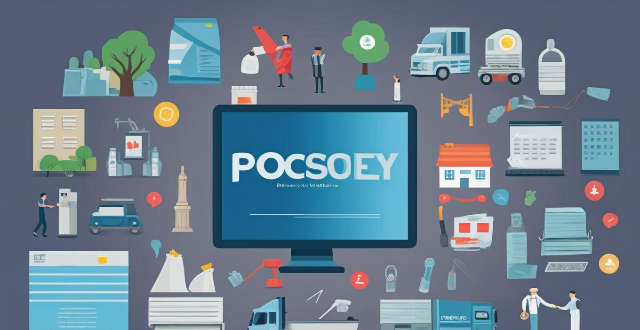
How do circular economy policies promote sustainability ?
Circular economy policies promote sustainability by reducing resource consumption, minimizing waste and pollution, fostering economic growth within ecological limits, creating social benefits and jobs, and encouraging systemic change and collaboration. Key practices include promoting product longevity, eco-design, zero-waste initiatives, clean technologies, circular business models, green jobs training, and multi-stakeholder cooperation. These policies aim to transition towards a more sustainable future by keeping resources in use for as long as possible while incurring the least waste.

What are the benefits of implementing energy conservation and emission reduction policies in businesses ?
Implementing energy conservation and emission reduction policies in businesses can bring numerous benefits. These benefits include environmental protection, cost savings, increased efficiency, competitive advantage, government incentives, investor appeal, improved public image, job creation, and positive community impact. By adopting these policies, businesses can contribute to a more sustainable future while also enhancing their own success and growth potential.
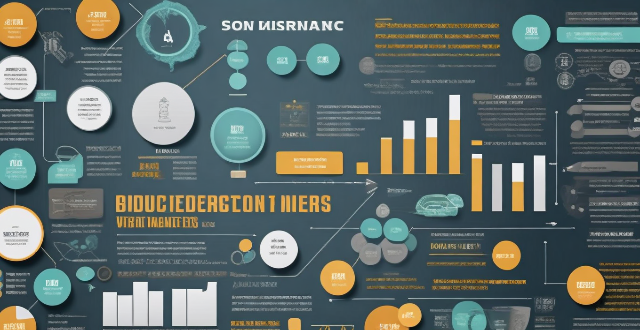
How do investors evaluate the credibility of a celebrity-led business ?
Investors consider various factors when evaluating the credibility of a celebrity-led business, including the reputation and expertise of the celebrity, the quality of the product or service, marketing and branding strategies, and financial performance and projections. By analyzing these factors, investors can make informed decisions about whether to invest in such businesses.

What are the benefits of using blockchain in business ?
The article discusses the various benefits of using blockchain technology in business operations. These benefits include increased transparency and trust, improved security, reduced costs and efficiency, greater control and traceability, enhanced data management, and potential for innovation and new business models. Blockchain's decentralized nature and cryptographic security make it a secure and efficient way to store and manage data, automate processes, and track the movement of goods and services. The technology also offers new possibilities for innovation and disruptive business models.

What are the benefits of implementing circular economy policies ?
Implementing circular economy policies brings environmental, economic, and social benefits. Environmentally, it reduces resource consumption, lowers greenhouse gas emissions, and improves waste management. Economically, it creates jobs, saves costs, and drives innovation. Socially, it ensures resource security, improves public health, and empowers consumers. Overall, adopting these policies shifts towards a sustainable system that prioritizes long-term planetary health.
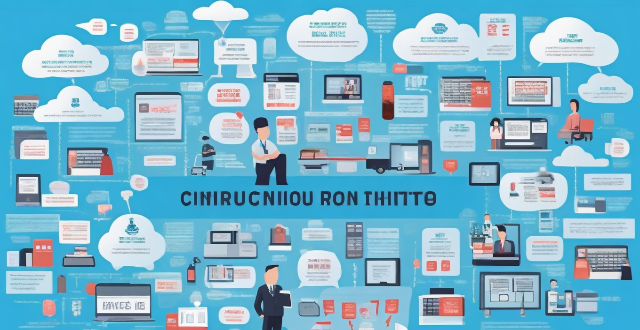
What challenges do countries face in implementing circular economy policies ?
Implementing circular economy policies is a complex process that countries face numerous challenges. These include lack of awareness and understanding, economic and industrial structure, legal and regulatory framework, market conditions and business practices, as well as social and cultural factors. Addressing these challenges is crucial for the successful implementation of circular economy policies, which can bring significant environmental and socioeconomic benefits.

How can circular economy policies contribute to economic growth ?
Circular economy policies can drive economic growth through innovation, job creation, and sustainable business models. By promoting resource efficiency, new markets, and sustainable supply chains, these policies reduce waste management costs and enhance corporate image. Government incentives further support businesses in adopting circular practices, mitigating risks from resource shortages and commodity volatility. Ultimately, the circular economy contributes to long-term economic stability by fostering renewable resource use and reducing waste.

How do I choose the right type of fire extinguisher for my home or business ?
Choosing the right type of fire extinguisher for your home or business requires careful consideration of various factors such as classification, size, ease of use, maintenance, cost, and brand reputation. By taking these factors into account, you can select a fire extinguisher that meets your specific needs and helps keep you and your property safe from fire hazards.

Can mind mapping be effectively used in business settings ?
Mind mapping is a visual tool that can be effectively used in business settings to enhance productivity, creativity, and communication. It helps individuals and teams organize information, generate ideas, and solve problems by creating a structured diagram of related concepts. The benefits of mind mapping in business include improved organization, enhanced creativity, increased productivity, and better communication. To implement mind mapping in business, one should choose the right tool, train their team, integrate it into processes, encourage collaboration, and continuously evaluate its effectiveness.

Where can I find comprehensive online learning resources for business management ?
The article discusses various online learning platforms that offer comprehensive resources for business management. These include Coursera, Udemy, edX, Khan Academy, and LinkedIn Learning. The courses provided by these platforms cover a wide range of topics, such as strategy formulation, financial management, human resource management, and marketing. Some of the popular courses mentioned are Introduction to Marketing by Northwestern University on Coursera, Business Finance for Non-Finance Managers on Udemy, and Strategy and Innovation in the New Economy by Stanford University on edX. The article emphasizes that these platforms offer courses suitable for learners of all levels and can help individuals acquire the necessary knowledge and skills to become successful business managers.
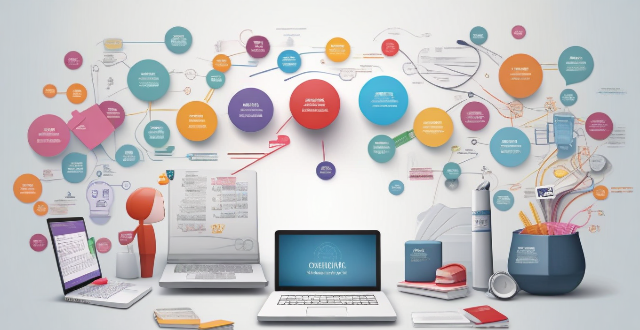
What role does a celebrity's reputation play in the success of their business ventures ?
The reputation of a celebrity can significantly impact the success of their business ventures. A positive reputation can establish trust and credibility with consumers, align with brand image, provide effective marketing opportunities, and foster customer loyalty. Managing perception is crucial in maintaining a positive reputation and avoiding negative publicity that could harm the business's reputation. Overall, a celebrity's reputation is a valuable asset that can contribute to the success and longevity of their business endeavors.

How do celebrity entrepreneurs balance their public image with their business responsibilities ?
Balancing public image with business responsibilities is crucial for celebrity entrepreneurs to maintain their personal brand and ensure the success of their ventures. Key strategies include consistent messaging, active social media presence, mindful public appearances, delegation, setting clear goals, continuous learning, aligning marketing strategies, collaborations, and transparency. By integrating these approaches, they can effectively navigate their dual roles, leveraging fame to drive business success while staying true to their personal brand.

How do immigration policies influence international relations ?
Immigration policies have a significant impact on international relations, affecting economic partnerships, diplomatic ties, and cultural exchange. These policies can attract highly skilled workers, boost innovation, and enhance trade relationships, but they can also lead to job market issues and social tensions. Cultural diversification from immigration can improve mutual understanding and respect between nations, while restrictive policies can hinder the movement of diplomatic personnel. A country's approach to refugees and asylum seekers can influence its global standing, and the handling of refugee crises can lead to political tensions. Economic migration can cause a brain drain or be viewed as a form of development assistance. Immigration policies are a critical area of focus for international relations due to their far-reaching implications.

How can women build a strong network in the business community ?
In today's competitive business landscape, building a strong network is crucial for success. For women, it is especially important to cultivate relationships with peers, mentors, and industry leaders. This guide will provide strategies and tips on how women can build a strong network in the business community by attending industry events and conferences, joining professional organizations, utilizing social media, seeking mentorship, and being proactive in maintaining relationships.

What is the impact of Brexit on UK immigration policies ?
Brexit has had a significant impact on UK immigration policies, including the end of free movement for EU citizens, the introduction of a points-based immigration system, a settled status scheme for EU citizens, changes in student visa policies, and increased scrutiny of immigration applications. These changes reflect the UK government's desire to regain control over its borders and shape its immigration policies according to national interests.
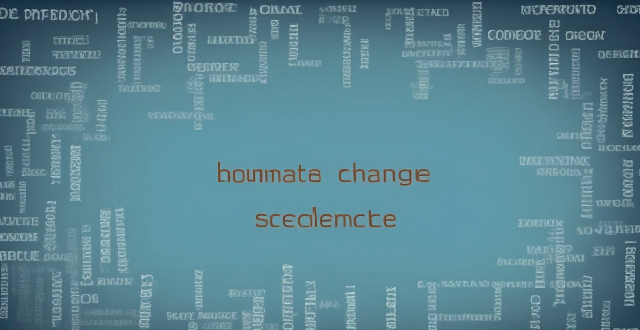
How does climate change impact ethical considerations in business practices ?
This text discusses the impact of climate change on ethical considerations in business practices. It outlines how climate change affects sustainability and resource use, supply chain resilience, product stewardship and lifecycle, employee and community well-being, and transparency and accountability. The text suggests actionable steps that businesses can take to address these issues, such as adopting renewable energy sources, diversifying suppliers, designing products with their end of life in mind, engaging with communities, and publishing annual sustainability reports. Overall, the text emphasizes the importance of integrating sustainability into every aspect of business operations to mitigate environmental impact and build trust with stakeholders.

How has the #MeToo movement influenced corporate culture and policies towards women ?
The #MeToo movement has had a profound impact on corporate culture and policies towards women. It has brought attention to the prevalence of sexual harassment and assault in the workplace, leading to increased awareness and action to address these issues. This movement has also influenced companies to adopt more inclusive and supportive policies for their female employees. One of the most significant impacts is the increased awareness and education about sexual harassment and assault in the workplace. Companies have recognized the need to educate their employees about what constitutes inappropriate behavior and how to report it. Many organizations have implemented mandatory training programs for all employees, including managers and executives, to ensure that everyone understands the company's policies and procedures regarding sexual harassment. The #MeToo movement has also led to changes in corporate culture, particularly in terms of creating a more inclusive and supportive environment for women. Companies are now placing a greater emphasis on diversity and inclusion initiatives, recognizing that a diverse workforce is not only ethical but also beneficial for business success. This includes implementing policies that promote equal pay, opportunities for advancement, and flexible work arrangements to accommodate the needs of working parents. Another key area where the #MeToo movement has influenced corporate culture is in improving reporting mechanisms for incidents of sexual harassment or assault. Companies are now taking steps to ensure that their employees feel comfortable coming forward with concerns and that they will be taken seriously. This includes establishing anonymous reporting channels, providing resources for support and counseling, and ensuring that investigations are conducted thoroughly and impartially. Many companies have adopted zero-tolerance policies towards sexual harassment and assault in response to the #MeToo movement. These policies clearly outline the consequences of engaging in such behavior, which can include termination of employment. By enforcing strict penalties for misconduct, companies aim to create a workplace culture where employees feel safe and respected. The #MeToo movement has also highlighted the importance of supporting victims of sexual harassment or assault. Companies are now offering more comprehensive resources for employees who have experienced such incidents, including access to counseling services, legal assistance, and job protection while they recover from the trauma. This support helps victims feel heard and validated, encouraging them to come forward and seek help when needed. In conclusion, the #MeToo movement has had a significant influence on corporate culture and policies towards women by increasing awareness and education about sexual harassment, promoting inclusivity and support, improving reporting mechanisms, adopting zero-tolerance policies, and providing support for victims. These changes demonstrate a commitment by companies to create a safer and more equitable workplace for all employees.

What is the purpose of a VPN (Virtual Private Network) device in a business network ?
The purpose of a VPN device in a business network is to provide secure and encrypted connections for remote access to the organization's resources, ensuring that employees, partners, and customers can access the company's data and applications securely from any location. Key features include encryption, authentication, firewall protection, scalability, and flexibility. Benefits of using a VPN device in a business network include enhanced security, improved productivity, cost savings, and simplified IT management.

What role do international organizations play in promoting environmental subsidy policies ?
International organizations play a crucial role in promoting environmental subsidy policies by providing information, facilitating cooperation, offering financial support, setting standards, and engaging in advocacy efforts.
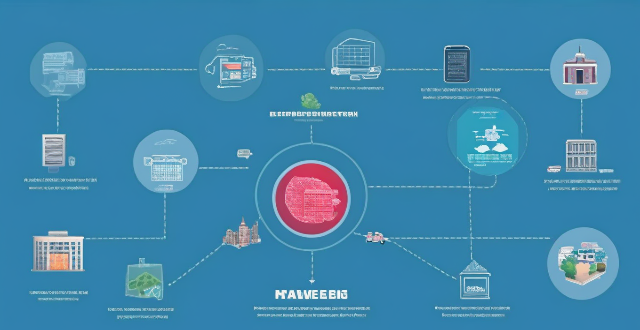
How can circular economy policies help achieve the United Nations Sustainable Development Goals ?
Circular economy policies align with the United Nations Sustainable Development Goals by reducing resource depletion, minimizing waste and pollution, promoting energy efficiency, creating jobs, enhancing resource efficiency and sustainable infrastructure, fostering global partnerships, supporting sustainable communities, encouraging innovation and education, and contributing to climate action. These policies offer a comprehensive approach to achieving sustainability by promoting a system that is restorative and regenerative by design, providing economic and social benefits and being a critical component of global sustainable development efforts.